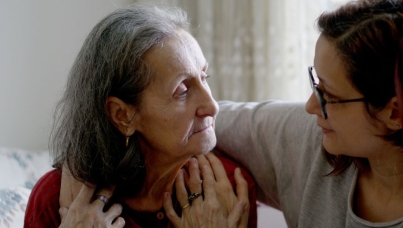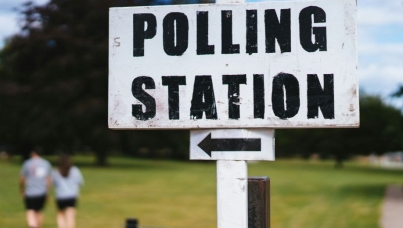General Election 2001 - Election Digest
Latest Rasmussen/Independent Findings Labour Party Private Poll Released NOP/Sunday Times Poll Finance Directors Believe Business Matters Ignored In Campaigns Voter Apathy Among Young
Latest Rasmussen/Independent Findings
The latest Rasmussen survey for the Independent has Labour on 44% (no change on last week), the Tories on 32% (down 1%), and the Liberal Democrats on 17% (up 1%), a Labour lead of 12%. Among those who say they are "very likely to vote", Labour's lead over the Tories is 10%.
Two thirds (66%) of voters believe that if Labour wins the General Election Britain will be taken into the single European currency within five years; a third (33%) believe we will not have within that time-scale.
Voters are evenly split over whether Labour can deliver its promise of an improved NHS if re-elected, 51% saying it can improve the service and 49% that it cannot.
Over three quarters (76%) want Tony Blair to serve the full term as Prime Minister should Labour win the election, compared to around a quarter (no exact figure given) who think he should make way for Gordon Brown. However, the Chancellor is clear favourite to take his place should Tony Blair cease to be party leader.
The Rasmussen Research poll uses a methodology of computer-automated responses which has not been previously used in polling British elections.
Source: The Independent, 29 May 2001. Technical details: Rasmussen Research interviewed 1,227 adults aged 18+ on 26-27 May 2001 by computer-generated telephone interviewing.
Labour Party Private Poll Released
Some findings from the Labour Party's private NOP surveys have been released to the media and show the party's lead to have risen 2% since election campaigning officially began. Labour are said to be on 46%, the Tories on 26% (no change recorded), and the Liberal Democrats are up 3% since the campaign launch on 16%. (However, the figures suggest that "don't knows" have not been excluded from the voting intentions, and that they are hence not directly comparable with the other published polls).
Figures show that Labour also lead the Tories on key election issues. On the issue of the economy Labour lead the Tories by 24% (43% to 19%); on tax their lead is 19% (49% to 30%), and on Europe (and which party is most trusted regarding this issue) the lead is at 12% (45% to 33%). When asked which party leader would best stand up for Britain, 44% favoured Tony Blair, compared to 37% who chose William Hague.
Source: The Guardian, 29 May 2001. Technical details: none given.
NOP/Sunday Times Poll
The latest NOP poll for the Sunday Times puts Labour on 49%, the Conservatives on 30% and the Liberal Democrats on 14%; these figures are unchanged since the corresponding poll the previous week. However, 46% think that an ever bigger Labour majority would be bad for the country, while only 31% think it would be good.
More than half, 53%, expect Britain to join the Euro during the next Parliament, while 35% think it will not join.
Two in three, 66%, say they would be prepared to pay for some NHS care if it meant an overall better service. Three in five, 60%, expect "stealth taxes, like National Insurance" to increase if Labour is re-elected.
Source: Sunday Times, 27 May 2001 Technical details: NOP interviewed 1,001 adults by telephone on 24-25 May 2001.
Finance Directors Believe Business Matters Ignored In Campaigns
Fewer than one in five finance executives believe that business matters are being covered in the main parties' election campaigns, according to a survey for recruitment firm Reed.
Source: Daily Express, 29 May 2001. Technical details: 460 finance executives were interviewed. No other details given.
Voter Apathy Among Young
"Less than half" (no exact figure given) of the estimated 3 million British 18-25 year olds will bother to vote in the impending General Election, according to an ICM survey for BBC Radio 1. Among first time voters, the figure who have no intention of voting rises to 82%.
Source: The Mirror 29 May 2001. Technical details: None given.



